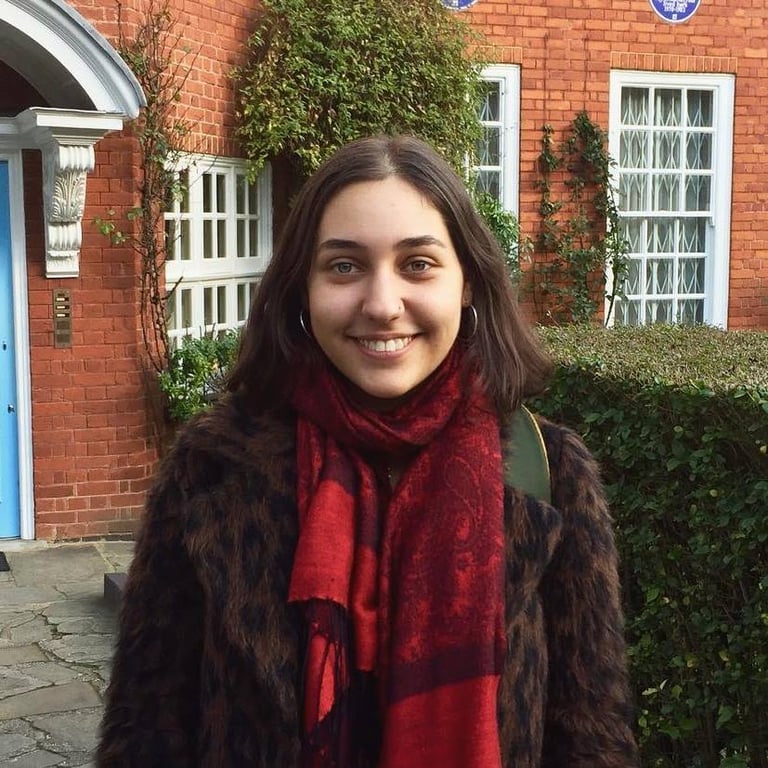Dora Dimitrova is a Fourth Year European International Social and Political Studies student. Last July, with a team of other passionate and creative volunteers, she helped our community partner Anna Fiorentini Theatre & Drama school to find new ways of funding. Read on to see why she joined our Social Hackathons and what she got out of it!

What made you decide to sign up for the Hackathon?
In high school, I volunteered with the European Youth Parliament and I learned a lot about the NGO sector and things like Corporate Social Responsibility and sponsorship deals when I was project managing a big EYP event. I wanted to harness this knowledge and experience to help out an important cause or organisation that UCL could put me in touch with.
How did you find the Social Hackathon Experience?
The experience was amazing! I really enjoyed working as a team with the other volunteers and it felt like we really complemented each other’s knowledge in the different parts of the Hackathon. I think we were able to work together so smoothly, despite not really knowing each other before, thanks to the fact that we were all committed to the project and finding creative solutions to help the Anna Fiorentini Theatre and Film School find new avenues of funding in order to be able to stay open. Of course the time limited nature of the Hackathon meant that we weren’t always able to figure everything out in as much depth as we would have liked, but I think it improved my time management skills and showed me the importance of striking a balance between breadth and depth when working with a large volume of content or ideas.
Did you get to put any of your skills and knowledge into practice and/or did you feel like you developed skills or knowledge from the Social Hackathon?
I got to put to good use my knowledge of how partnerships with small, local businesses can be beneficial to a charity and how they’re different from big companies’ CSR schemes. Something new I learned through the Hackathon was a bit about the governance structure of charities in the UK and things like what a trustee’s responsibilities are. I’m very grateful for this new knowledge and I’m sure it will be of use in the future.
Do you have a deeper understanding of the issues your assigned charity faces?
Yes, I think being asked to come up with solutions to a problem in a concrete and hands-on way is so beneficial to understanding how charities work and how each one is unique in its mission, as well as in the challenges it faces: you learn in a way that simply cannot be achieved in the classroom through pure theoretical study.
How did you find the virtual aspect of the Hackathon?
The team from the Volunteering Service did a very good job of structuring the day with Zoom breakout rooms so that it wouldn’t get chaotic, and they sent us materials about the Hackathon in advance so that we could come prepared.
Would you recommend other students to take part in a virtual Social Hackathon? Do you have any tips?
I would definitely recommend the experience to anyone interested in the charity/NGO sector or just interested in making a difference for a day. My advice is to really think outside the box and get creative!
Inspired to join our next Social Hackathons? Don't miss our announcements and subscribe to our newsletter to find out when the next one will be held. You can also support charities anytime from home - check out our virtual volunteering roles here!